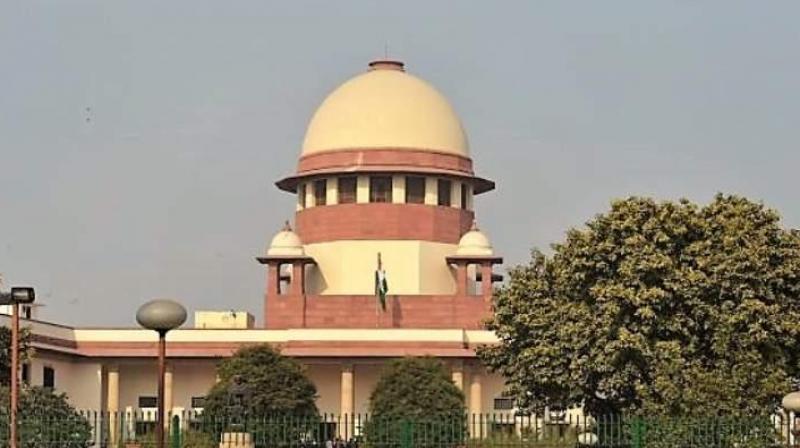Supreme Court concerned over eight states not giving consent for CBI probe
A bench comprising Justice Sanjay Kishan Kaul and Justice M.M. Sundresh expressed concern over the state of affairs;

New Delhi: The Supreme Court on Monday expressed concern over eight state governments – all non-BJP ruled states -- not granting “general consent” to the Central Bureau of Investigation (CBI) to carry out investigation in their respective states, describing it as not a “desirable position”.
Maharashtra, Punjab, Chhattisgarh, Rajasthan, Jharkhand, West Bengal, Kerala and Mizoram have withdrawn their general consent to the CBI to investigate cases within their territory, alleging that the Central agency was being misused by the BJP-ruled Centre for political witch-hunt and vendetta.
Referring the issue to the Chief Justice of India, Justice N.V. Ramana, for consideration, a bench comprising Justice Sanjay Kishan Kaul and Justice M.M. Sundresh expressed concern over the state of affairs as the investigating agency informed the court that it has sent 150 requests to eight state governments from June 2018 to June 2021 for the grant of specific consent to investigate cases in their respective states.
The CBI in its affidavit, which is rooted in the top court's order passed in a matter relating to inordinate delay in filing an appeal in a case concerning two lawyers of J&K, says, “It is noteworthy to mention that CBI has sent over 150 requests to the governments of
Maharashtra, Punjab, Chhattisgarh, Rajasthan, Jharkhand, West Bengal, Kerala and Mizoram during the period 2018 to June, 2021 for grant of specific consent for investigation of cases in the territory of these states. The aforesaid requests were made for investigating Trap cases, Disproportionate Assets cases, cases relating to allegation of cheating, forgery, misappropriation and loss of foreign exchange and also bank fraud cases. Requests were granted in less than 18 per cent cases, which were related mainly in cases of Trap of corrupt Central public servants.”
Initially, in the J&K matter, the top court was irked over CBI seeking condonation of inordinate delay of 542 days in filing appeal against J&K High Court order in a case against two lawyers Mohammad Altaf Mohand and Sheikh Mubarak relating to threatening of witnesses and fabricating false evidence. The appeal was filed in 2019 and came up for hearing in January 2020.
Noting that the time taken by the investigating agency to even take the decision to file an appeal after obtaining the certified copy of the order was more than 10 months -- from April 26, 2018 to March 7, 2019 -- the court said that there were delays at every step in the consideration of the case within the agency. The court asked the CBI to explain these delays.
Not satisfied with its explanation, the top court by its February 7, 2020, order directed the CBI Director to file an affidavit as to “what steps are being taken or have been taken and what system has been put in place to facilitate a proper functioning of prosecution of legal cases.”
In the subsequent hearing, on September 3, 2021, the court ordered the CBI to furnish details on the “steps taken or proposed to be taken over the inadequacies in existence. Such inadequacies extend to the manpower, infrastructure facility and the quality of investigation.”
Referring to the “common perception” that the success rate of the cases being prosecuted by the investigating was “low”, the court directed the CBI to place before it “the year wise data on the cases under prosecution, the time period over which they are pending before the trial courts and the percentage of conviction rendered by the courts at different levels.”
It was in response to this order; the CBI in its affidavit voiced its grievance over eight non-BJP ruled states in not granting general consent to it (CBI) to investigate cases in their respective states.

